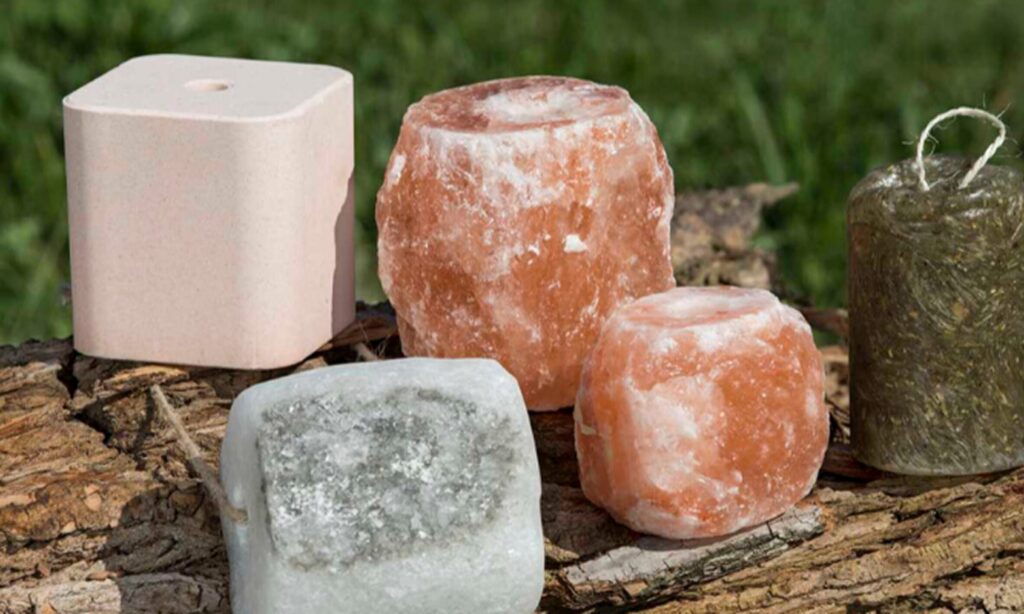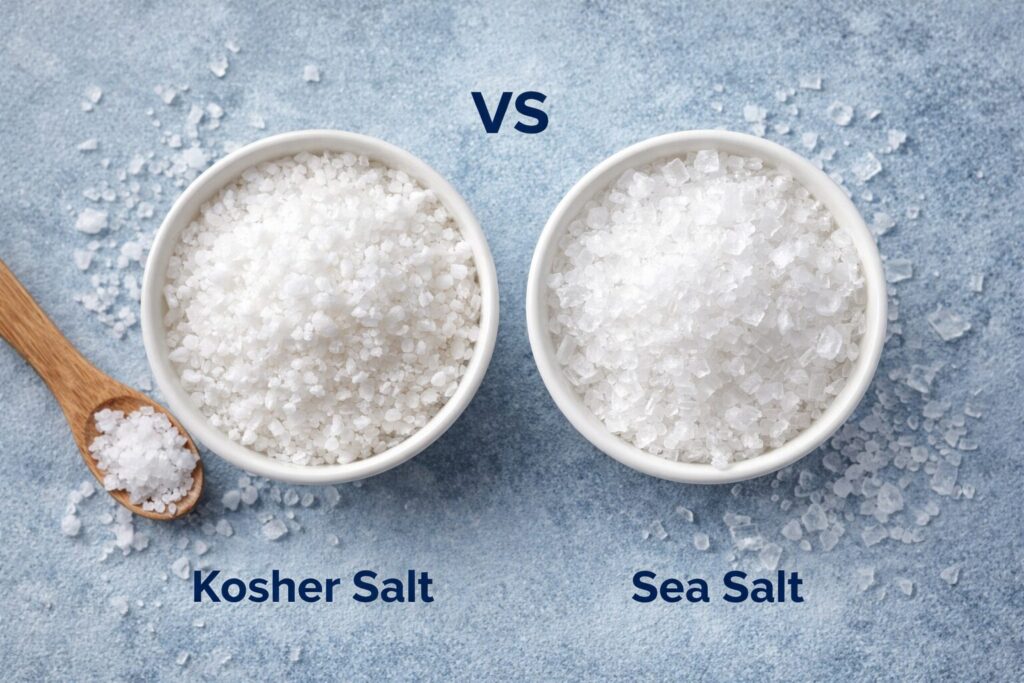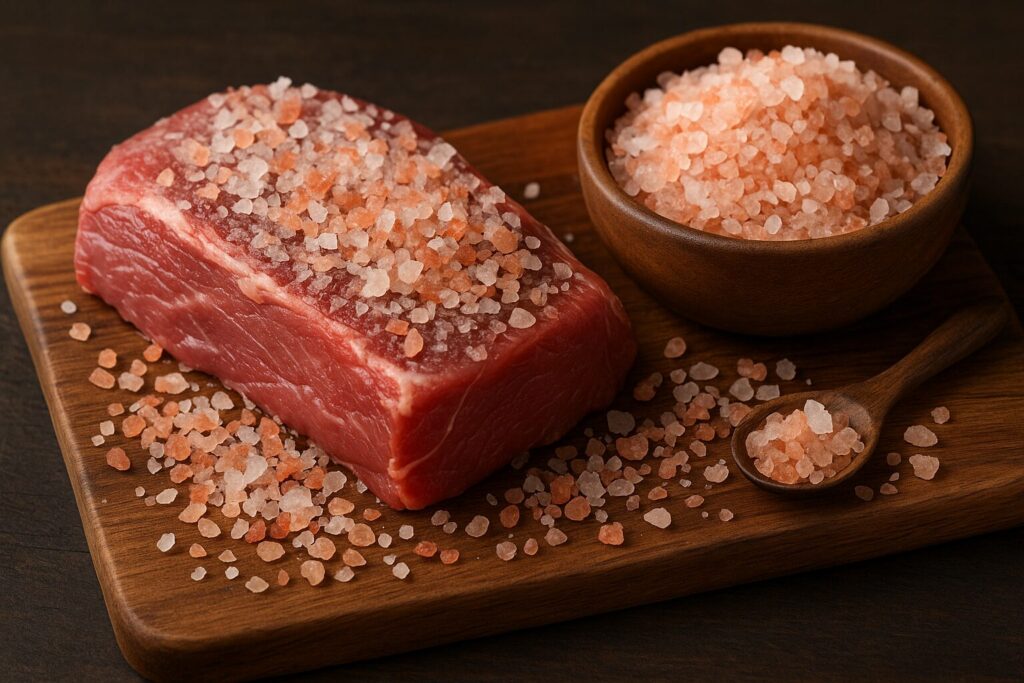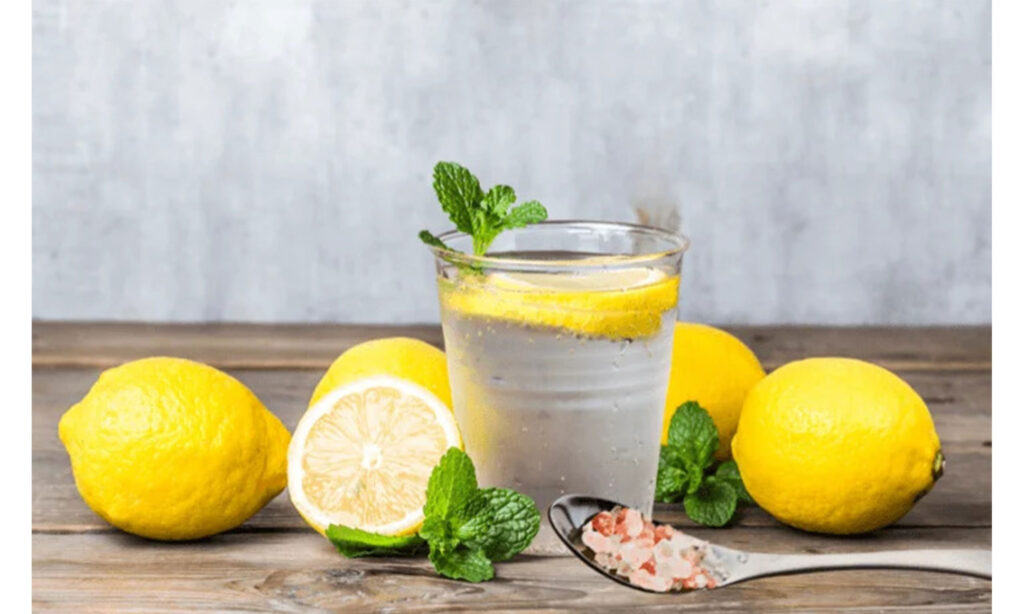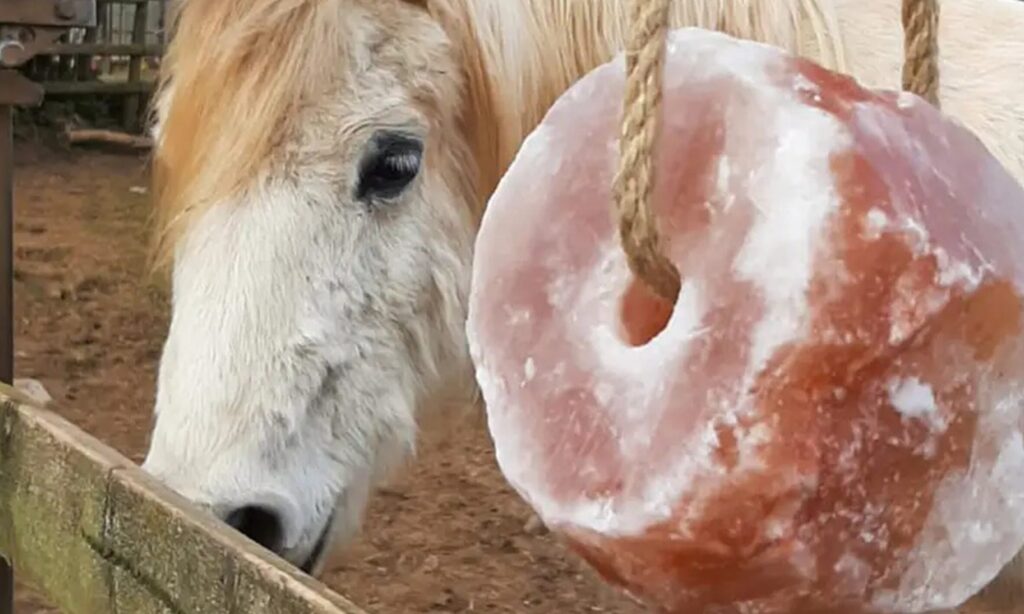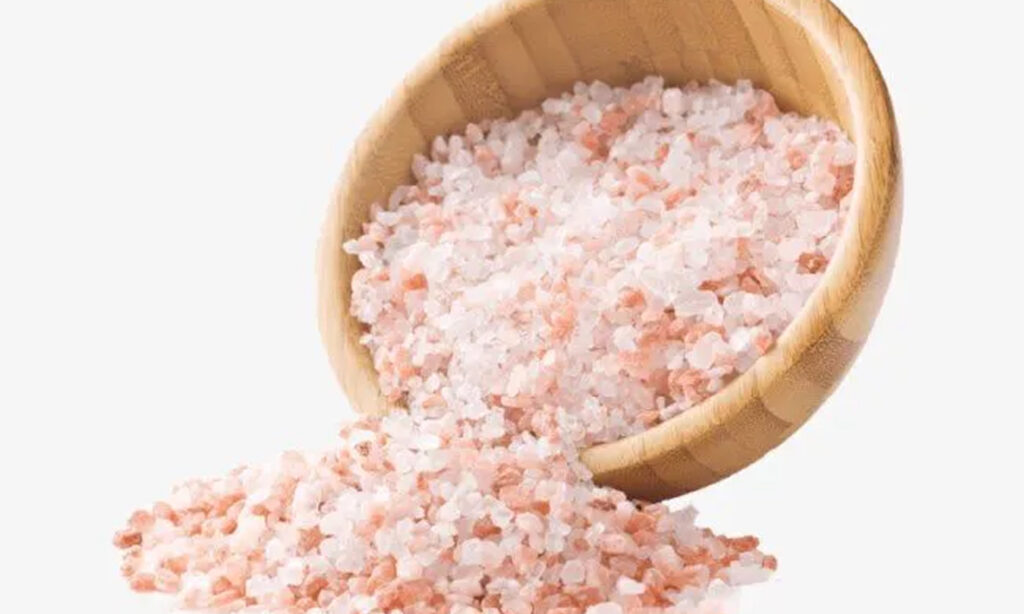Salt is one of nature’s most vital minerals not just for humans but for every living creature. From horses and cows to rabbits, ibex, and even household pets, animals instinctively seek out salt to maintain health and hydration.
If you’ve ever seen your pet licking stones, walls, or even your hands, it might be their natural way of looking for minerals they’re missing. This is where salt licks come in simple yet powerful sources of essential nutrients.
In this article, we’ll explore why animals need salt licks, how different pets benefit from them, and how to choose the right one for your furry (or hooved) companions.
What Are Salt Licks?
A salt lick (also called a mineral lick) is a solid block made of natural salt — often Himalayan pink salt or mineral-enriched rock salt that animals can lick to supplement their diet.
In the wild, animals find natural mineral deposits on rocks or soil and lick them instinctively. These minerals include sodium, calcium, magnesium, iron, and trace elements that are essential for muscle function, nerve activity, and hydration.
Domesticated animals don’t always have access to these natural deposits, so providing salt licks ensures they can meet their body’s mineral needs safely and conveniently.
Why Pets Need Salt Licks for Mineral Balance and Overall Health
One of the primary reasons why pets need salt licks is to maintain mineral balance. Sodium, potassium, calcium, and other trace minerals support everything from nerve function to muscle development. Without these, pets may suffer fatigue, poor growth, or digestive issues.
Whether it’s a playful pup or a nibbling guinea pig, understanding why pets need salt licks highlights how essential they are for providing balanced minerals in the diet. Salt licks offer a natural and easy way to support overall health.
Benefits of Salt Licks for Pets Like Dogs, Rabbits, and Guinea Pigs
Different pets have different needs, but the benefits of salt licks for pets like dogs, rabbits, and guinea pigs are well documented:
-
Dogs: Salt licks help regulate fluid balance and aid in muscle function.
-
Rabbits: They naturally chew and lick objects; salt licks provide safe mineral enrichment.
-
Guinea pigs: These small creatures require trace minerals to support bone health and immune function.
Beyond physical health, chewing on a salt lick can also keep pets mentally stimulated and prevent boredom.
Importance of Salt Licks for Pets’ Hydration and Nutrient Intake
Many pet owners overlook why pets need salt licks for pets’ hydration and nutrient intake. Sodium in salt helps retain water in the body, ensuring your pet stays hydrated, especially in warmer months.
Electrolyte balance also relies on sodium and potassium both commonly found in salt licks. These electrolytes help transmit nerve impulses, making them vital for active animals and reinforcing why pets need salt licks as part of their wellness routine.
How Salt Licks Support Pet Health and Prevent Deficiencies
If you’ve ever wondered how salt licks support pet health and prevent deficiencies, consider this: a lack of key minerals can lead to lethargy, skin issues, and poor appetite.
Salt licks offer a controlled way to introduce nutrients without the need for synthetic supplements. Regular licking ensures that pets self regulate their intake. It’s nature’s way of ensuring they get what they need no more, no less.
Natural Salt Licks for Pets and Their Role in Animal Wellness
Natural salt licks, especially those made from Himalayan rock salt, are rich in unique minerals like iron, calcium, and magnesium. These not only support internal systems but also contribute to healthier fur, nails, and overall vitality.
The role of natural salt licks for pets in animal wellness goes beyond diet. Pets instinctively seek out mineral rich sources to satisfy internal cravings, especially during growth, lactation, or recovery from illness.
What Makes Natural Salt Licks Essential for Pets
Every animal’s body needs sodium and trace minerals to stay healthy. Salt licks play a crucial role in:
Maintaining electrolyte balance: Sodium and potassium regulate hydration, blood pressure, and muscle contractions.
Supporting nerve and muscle function: Deficiency can cause muscle weakness, poor appetite, and fatigue.
Promoting digestion: Salt helps trigger enzymes and aids nutrient absorption.
Encouraging natural licking behavior: Licking is instinctive and calming, reducing stress and boredom in confined animals.
For pets that live indoors or on processed diets, salt licks provide a natural, non-synthetic mineral source that supports overall well-being.
How to Use Salt Licks Safely
Here are a few Himalayan salt candle holder care tips you can also apply to salt licks:
-
Monitor Consumption: Ensure your pet isn’t overusing the salt lick.
-
Keep It Clean: Wipe it down weekly to prevent buildup.
-
Avoid Flavored Licks: These may contain additives harmful to some species.
-
Consult Your Vet: Especially if your pet has kidney or heart conditions.
A Natural Boost to Your Pet’s Life
In summary, why pets need salt licks lies in their ability to offer natural, self regulated access to essential minerals. From hydration to energy and immune support, salt licks contribute silently but powerfully to pet wellness.
Natural, simple, and effective, salt licks are an often overlooked secret to a happy, healthy pet. Understanding why pets need salt licks helps pet owners make informed choices that support lifelong animal wellness.
How Salt Licks Benefit Horses, Cows, and Other Animals
Salt Licks for Horses
Horses lose a lot of salt through sweat, especially in hot weather or during workouts. Without replenishment, they can suffer from dehydration, fatigue, and muscle cramps.
Providing a horse salt lick ensures they maintain healthy hydration, stamina, and nerve function. Most horses instinctively regulate their intake, licking only as much as they need.
Why Cows Need Salt Licks
Cows require salt to maintain milk production, appetite, and digestion. A deficiency can lead to weight loss, rough coats, and even reproductive issues.
Farmers often use Himalayan salt blocks for cows to prevent these issues naturally and improve feed efficiency.
Do Rabbits and Bunnies Need Salt Licks?
For rabbits, opinions differ. Domestic rabbits on balanced commercial diets may get enough salt from pellets, but free-range or organic-fed rabbits may benefit from small Himalayan salt licks.
Salt licks also help keep rabbits’ teeth healthy and satisfy their instinct to chew and lick reducing cage boredom.
Do Dogs Need Salt Licks?
Dogs usually get sufficient salt from their food, but active or outdoor dogs can benefit from small Himalayan salt chunks to maintain electrolytes after heavy activity.
However, portion control matters too much salt can cause dehydration or kidney strain in dogs. Always provide fresh water nearby.
Why Ibex and Wild Animals Need Salt
Mountain animals like ibex, deer, and goats travel long distances to find natural salt deposits. Salt supports bone strength and helps them recover from exertion in rugged terrains.
Offering salt licks in wildlife sanctuaries ensures these animals stay healthy and reduces their need to wander far for minerals.
Do Indoor Pets Also Need Salt Licks?
For indoor pets like rabbits, guinea pigs, and small rodents, salt licks serve both nutritional and behavioral purposes.
They help prevent mineral deficiency, especially in regions with soft or demineralized water, and also provide mental stimulation by satisfying their natural urge to gnaw.
However, it’s important not to over-provide moderation is key. Observe your pet’s licking behavior and consult your vet if you’re unsure about their mineral needs.
Potential Risks & Veterinary Advice
While salt licks are generally safe, excessive salt intake can cause problems such as dehydration, electrolyte imbalance, or kidney strain especially in animals with pre-existing health conditions.
Veterinary advice:
Always provide fresh, clean water alongside any salt lick.
Avoid flavored or artificial mineral blocks with dyes or additives.
Monitor intake if your animal licks excessively, consult a vet.
Ensure that salt blocks for large animals aren’t accessible to smaller pets.
When used correctly, salt licks are completely safe and highly beneficial for most pets and livestock.
FAQs
What is the main reason why pets need salt licks?
Salt licks provide essential minerals that support hydration, energy levels, and immune system function.
Are salt licks safe for all pets?
Yes, when used appropriately. Make sure the salt lick is species specific and free from artificial additives.
Can too much salt harm my pet?
Overconsumption can be an issue. Monitor your pet’s usage and always provide fresh water nearby.
Do indoor pets also need salt licks?
Absolutely. Even pets that stay indoors may lack minerals not present in processed pet foods.
Which type of salt lick is best?
Natural salt licks like Himalayan rock salt are generally best due to their rich profile of unique minerals.


